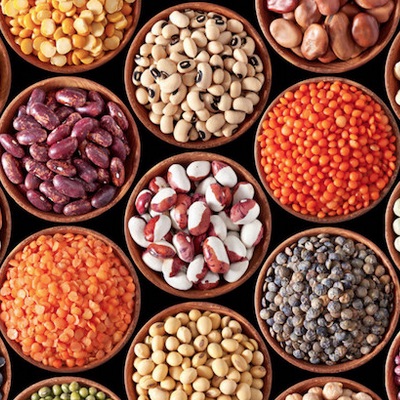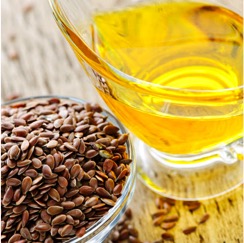The 6 Essential Nutrient Groups Required By The Body For Optimal Health
Last updated on
Learn about the 6 essential nutrient groups, their role in the body, and the best food sources for each.
Optimal health is not just the absence of diseases. Many people accept that if they are not sick or diagnosed with a disease, then they must be healthy. The effects of silent inflammation or deficiencies in the body are often not visible for years before the body finally breaks down.
When life is not lived in a state of “optimal health”, there will be symptoms that may not be serious enough to be diagnosed as a disease, yet they are your body’s warning signs that your health is compromised. For example, when you constantly feel tired during the day even though you had slept 7-8 hours in the night, it is a sign that you are not living your life in a state of optimal health.
Check out this list that will tell you if your health is compromised.
What Does It Mean To Live In A State Of Optimal Health?
Living your life in a state of optimal health means TWO very important things:
- Detoxification: Getting rid of toxic substances from your body. Read everything about detox here.
- Nourishment: Getting the right nutrients into your body to nourish every cell for optimal health.
Discover the six essential nutrient groups required to keep your body in optimal health. Understand the main roles of each nutrient, as well as the best food sources of each.
What Are The 6 Essential Nutrient Groups?
The nutrients required by humans for optimal health can be divided into 6 groups. The nutrients below are essential, meaning that your body cannot produce them on its own, and you need to get them from a healthy diet.
- Carbohydrates
- Protein (there are 8 essential amino acids)
- Fats or lipids (there are 2 essential fatty acids)
- Water
- Minerals (there are 5 essential minerals and 16 essential trace minerals)
- Vitamins (there are 13 essential vitamins)
The 6 Essential Nutrient Groups Explained
Here is an overview of each of the essential nutrients, their main functions in the body, and where you can get them.
Carbohydrates

Carbohydrates can be either single molecules called monosaccharides (e.g. glucose); or complex chains of molecules called polysaccharides (e.g. cellulose).
The role of carbohydrates in the body: Carbohydrates are broken down in the body to form glucose that gives us energy. Without sufficient carbohydrates, the body will break down protein and fat to yield energy, which is detrimental to health in the long run.
The carbohydrate group includes: Polysaccharides (such as cellulose, starch and glycogen); disaccharides (such as sucrose and lactose); and monosaccharides (such as glucose and fructose).
Good sources of carbohydrate: We should aim to consume complex carbohydrates from fruits, grains, beans, and root vegetables as these are broken down gradually throughout the day providing a steady flow of energy; or fructose from fruits.
Bad sources of carbohydrate: Processed foods with refined sugar.
Protein
All proteins are initially made by plants. It is not necessary to eat animal meat to get your protein. Animal protein is simply “recycled” plant protein. Green vegetables are loaded with protein and they are much more beneficial and bioavailable to your body.
Proteins are the basic building material for all living cells. Proteins are built from a combination of up to 25 different amino acids, each serving its own purpose.

From these the rest of the amino acids can be made. Non-essential doesn’t mean that you don’t need them. It just means that your body can manufacture them.
The role of proteins in the body: Proteins are necessary for growth (building new tissues) and repair. Every cell in our body needs protein to stay alive.
Good sources of protein: For a protein food source to be complete, it must contain the eight essential amino acids. Eggs, cereals/grains such as quinoa, fish, yogurt, green leafy vegetables, seeds, nuts, beans, lentils, spirulina and chlorella are all excellent sources of protein.
Bad sources of protein: Although complete sources of protein, avoid red meats as they are acid-forming, difficult to digest and assimilate, and often contain antibiotics and growth hormones unless if you eat grass-fed animal meats.
Fatty Acids
Essential fatty acids is the scientific term for fats that the body cannot make on its own.
Linoleic and alpha-linolenic are the only two essential fatty acids that cannot be synthesized by the body and must be obtained from our diet.

The role of fats in the body: Fats act as a backup source of energy when carbohydrates are unavailable and to insulate they body. They are used as an energy storage, for storing fat-soluble vitamins, facilitating nerve transmissions (essential for brain health) and protecting our vital organs and joints.
The fats group includes: Linoleic and alpha-linolenic are the only two essential fatty acids.
Good sources of fats: Dark green leafy vegetables, seeds, nuts (especially walnut and almond), whole grains. Discover the best sources of essential fatty acids.
Water

The role of water in the body: Water is essential for cells to function. We need water for the transport of nutrients, waste removal, regulation of body temperature, chemical reactions and many other uses in the body.
How much water should we drink each day? In a temperate climate, a healthy adult should drink roughly 1.5-2 liters of water a day. However, the amount of water required varies from person to person and depends on the amount of exercise you do, climate (hot or cold) and body mass. Here is a good water consumption guide according to your body size.
Minerals
Minerals are naturally-occurring inorganic substances. There are approximately 3800 known minerals, 21 of which are essential to the healthy functioning of the human body.

The mineral group includes: The five major minerals in the human body are calcium, phosphorus, potassium, sodium, and magnesium. The body also needs smaller amounts of minerals known as trace minerals that have a specific biochemical function in the human body: iron, cobalt, copper, zinc, manganese, molybdenum, iodine, selenium, sulfur, chloride, boron, silicon, vanadium, nickel, arsenic and chromium.
Good source of minerals: We can get all of the minerals the body needs by eating a diet that is mostly plant-based, especially with plenty of fresh fruits and vegetables.
Vitamins
Vitamins are a group of organic compounds essential for normal growth and nutrition for the body. They are required in small amounts in the diet because they cannot be synthesized by the body.

The vitamin group includes: There are 13 essential vitamins: Vitamins A, C (ascorbic acid), D (now technically classified as a hormone), E, K, and the B vitamins: B1 (thiamine), B2 (riboflavin), B3 (niacin), B5 (pantothenic acid), B6 (pyroxidine), B7 (biotin), B9 (folic acid) and B12 (cobalamin).
Good source of vitamins: We can get all of the vitamins the body needs by eating a diet that is mostly plant-based, especially with plenty of fresh fruits and vegetables.
Summary
Nature provides you with all of the essential nutrients that your body requires. You can get more than enough nutrients through eating a diet that is mostly plant-based, with plenty of fresh fruits and vegetables.
Ensure your diet is made up primarily of alkaline-forming foods, that allow the body to better-absorb and assimilate the nutrients it so craves.
Fresh fruits and vegetable juicing is a one of the best ways to supply your body with large amounts of essential vitamins and minerals, most effectively and fast. Check out our juicing beginner’s guide here.
The Ultimate Guide to Juicing.
Some of the links I post on this site are affiliate links. If you go through them to make a purchase, I will earn a small commission (at no additional cost to you). However, note that I’m recommending these products because of their quality and that I have good experience using them, not because of the commission to be made.


































 JOIN OVER
JOIN OVER
Comments